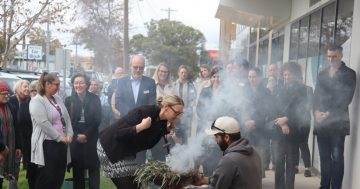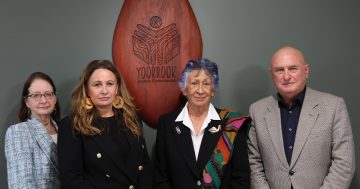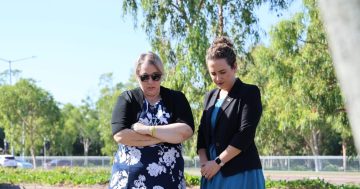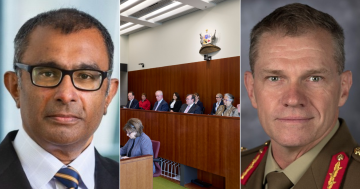
The #RaiseTheAge campaign represents more than 200,000 people in Australia wanting the minimum age of criminal responsibility lifted from 10 to at least 14. Photo: File.
The nation’s attorneys-general met on 1 December to discuss, among other matters, raising the age of criminal responsibility from 10 to 14 years. Since then, Tasmania has committed to action, but the meeting only decided to reconvene the Age of Criminal Responsibility Working Group for development of a proposal.
Before the Standing Council of Attorneys-General (SCAG) meeting, a joint statement signed by community services providers, advocates and more than 100 health, legal, social and Aboriginal and Torres Strait Islander Community-Controlled Organisations made their plea for nationwide reform.
According to the #RaiseTheAge statement, the current low age of criminal responsibility disproportionately impacts Aboriginal and Torres Strait Islander (ATSI) children, and children with disabilities, and is a key driver of contact with police and the criminal legal system.
It states that raising the age to anything short of 14 will fail to reduce the overrepresentation of ATSI children in prisons and help governments meet their Closing The Gap targets.
Change the Record’s national director and Gunggari person Maggie Munn said advocates, families and communities were all fed up with having to plead with governments for the bare minimum.
“We have waited years and years for governments across this country to act on the advice from experts across legal, medical and psychological fields to raise the age to at least 14, and yet here we are still waiting to see change,” she said.
Alongside the Human Rights Law Centre, Australian Medical Association president Professor Steve Robson called for immediate action by the SCAG.
“The health advice is crystal clear – jail has terrible impacts on the health and wellbeing of children,” he said.
”It is not appropriate to hold children criminally responsible at this cognitive developmental stage. All children have a right to feel safe, secure and go to school – jail is not the place for this.”
National ATSI Legal Service co-chair Nerita Waight said the Commonwealth should be investing in the support these children needed, not stealing their futures by putting them in prison.
“It’s almost a decade since the attorneys-general agreed to develop a plan to raise the age and they still have not delivered. It’s time to get this done,” she said.
However, the campaign acknowledged that some progress has been made.
The ACT has raised the age to 12 and will increase it to 14 by 2025. The Northern Territory Government raised the age to 12 in August, and the Victorian Government has committed to setting it at 12 in 2024.
Tasmania announced in its Youth Justice Blueprint report, released on 5 December, that it would commit to raising the minimum age of criminal responsibility from 10 to 14 with no exceptions, alongside raising the minimum age of detention to 16 by 2029.
The state’s Aboriginal Legal Services CEO Jake Smith said while they were pleased to see the government commit to the proposal, it was “disappointing” for it to have taken six years.
According to a communique from the SCAG meeting, participants:
- Noted the positions and updates on minimum age of criminal responsibility reform in
each jurisdiction. - Agreed to share future updates on minimum age of criminal responsibility reform to the
Standing Council of Attorneys-General. - Released the Age of Criminal Responsibility Working Group’s Report.
- Noted officials will continue to work together to share lessons and consider
cross-jurisdictional matters related to minimum age of criminal responsibility reform. - Noted the Justice Policy Partnership will continue to consider community-led approaches
to support minimum age of criminal responsibility reform, in line with its priority to
achieve Targets 10 and 11 under the National Agreement on Closing the Gap.
Previously, a report prepared for SCAG in 2020 by the Council’s Working Group recommended “the Commonwealth, State and Territory governments should raise the minimum age of criminal responsibility to 14 years of age, without exception”.
But according to the most recent Working Group report, the 2020 draft report was not agreed to by all jurisdictions at officer level, “nor provided to the Council of Attorneys-General [SCAG’s predecessor] for consideration”.
The current report said those jurisdictions considering reform would need to consider both the initial crisis response to ensure the immediate safety of the child and community, as well as a secondary response that provided links to services, programs and supports to address longer-term needs and the underlying causes of behaviour.
“Consideration also needs to be given to any impact on victims and their ability to access supports and services or to participate in processes that are rehabilitative to them.”











